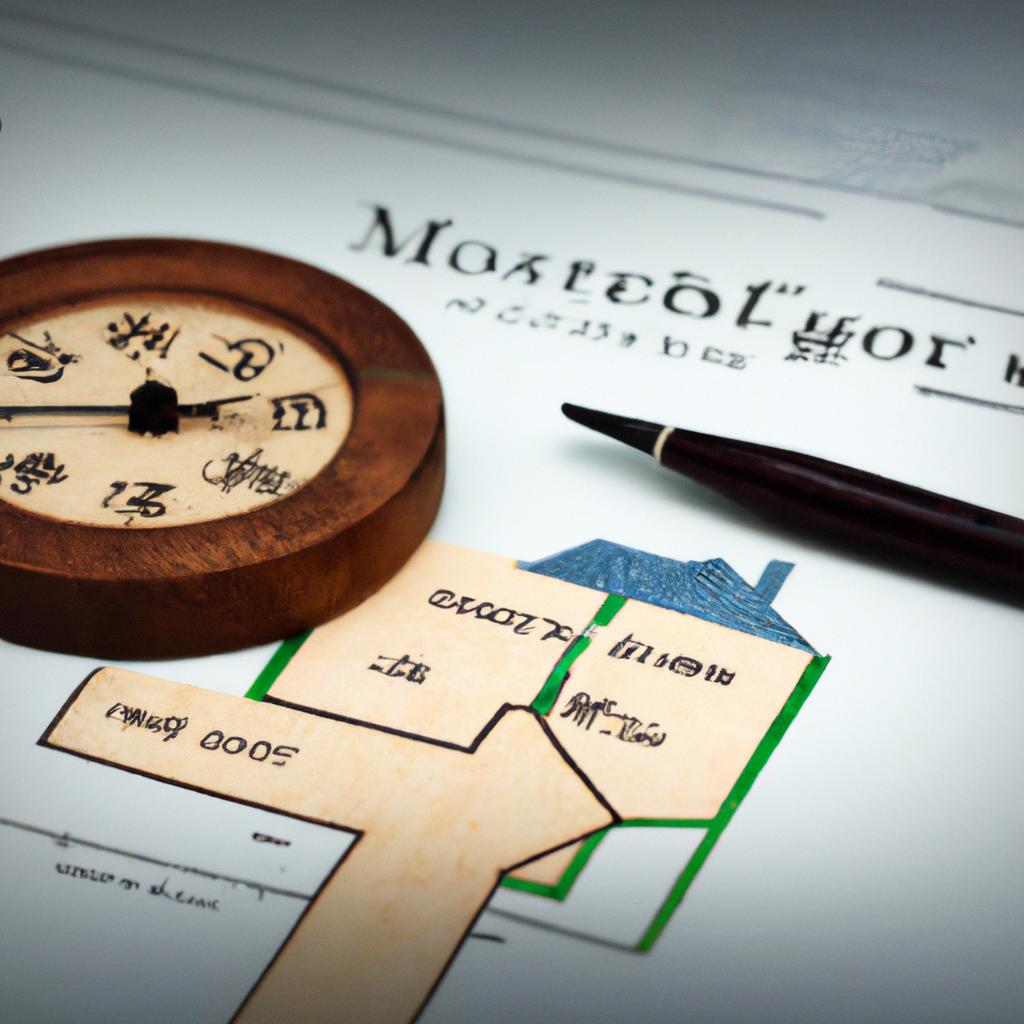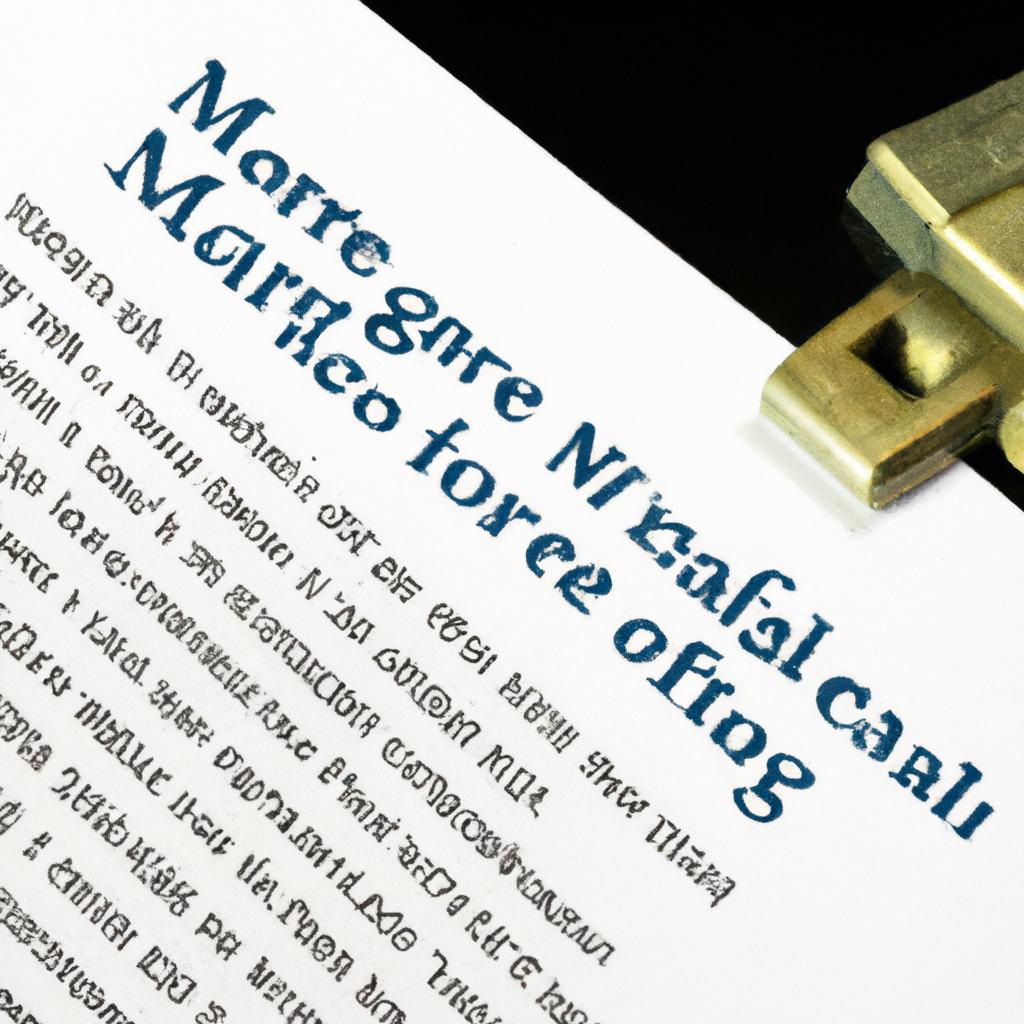When an individual passes away, the issue of what happens to their existing mortgage can be a complex and oftentimes confusing matter. In the world of real estate law, assuming a mortgage after death is a topic that requires in-depth knowledge and meticulous attention to detail. Here at Morgan Legal Group in New York City, our experienced team of lawyers specializes in estate planning, probate, elder law, Wills, and trusts, including navigating the intricate process of assuming a mortgage after the death of a loved one. Join us as we delve into the legal considerations and potential implications of this important aspect of estate administration.
Understanding the Legal Implications of Assuming a Mortgage After the Borrower’s Death
When a loved one passes away, the responsibility of their outstanding debts, including a mortgage, can be overwhelming. Assuming a mortgage after the borrower’s death can have significant legal implications that need to be carefully considered. It is crucial to understand the rights and obligations associated with the transfer of a mortgage to ensure that you are making informed decisions.
Here are some key considerations when assuming a mortgage after the borrower’s death:
- Review the terms of the original mortgage agreement to understand the obligations of the borrower.
- Contact the lender to notify them of the borrower’s death and discuss the options available for assuming the mortgage.
- Consider the impact on your credit score and financial stability before taking on the responsibility of the mortgage.

Key Considerations Before Taking on a Deceased Borrower’s Mortgage
When considering assuming a deceased borrower’s mortgage, there are several key considerations that should be taken into account before making a decision. It is important to carefully review the terms of the existing loan and understand the potential risks and obligations that come with taking on the mortgage.
One important consideration is the financial implications of assuming the mortgage. This includes evaluating the current interest rate, monthly payments, and remaining balance on the loan. Additionally, it is crucial to assess your own financial situation to determine if you have the means to continue making payments on the mortgage. Consulting with a legal professional who specializes in estate planning and probate can provide valuable guidance and ensure that you fully understand the implications of assuming the mortgage.

Navigating the Process of Assuming a Mortgage After the Borrower Passes Away
After the unfortunate passing of a loved one who had a mortgage, the process of assuming the mortgage can seem daunting. As experienced estate planning attorneys, we understand the complexities involved and are here to guide you through each step. One crucial aspect to consider is whether the mortgage is assumable or non-assumable.
In the case of an assumable mortgage, the process may be smoother as the heir or beneficiary can simply take over the existing mortgage. This option can save time and money compared to obtaining a new mortgage. However, if the mortgage is non-assumable, the heir or beneficiary may need to seek alternative solutions such as refinancing or selling the property. Our team at Morgan Legal Group can provide expert advice tailored to your unique situation and help you navigate the process with confidence. Remember, you don’t have to tackle this process alone - we are here to support you every step of the way.
Tips for Safeguarding Your Rights When Assuming a Mortgage Post Death
When it comes to assuming a mortgage after the death of a loved one, it’s important to protect your rights and ensure a smooth transition. Here are some valuable tips to help safeguard your interests:
- Review the Terms: Take the time to carefully review the terms of the existing mortgage to understand your obligations and rights as the new homeowner.
- Notify the Lender: Contact the lender as soon as possible to inform them of the borrower’s passing and establish communication regarding the assumption process.
- Consider Transferring Title: If you are inheriting the property, consider transferring the title to your name to simplify the assumption process and avoid potential complications.
| Important Date: | October 15, 2023 |
| Documents Needed: | Death certificate, Will, Mortgage agreement |
Q&A
Q: What happens to a mortgage when the borrower passes away?
A: When a borrower passes away, the mortgage doesn’t simply disappear. The loan must still be repaid, either by the borrower’s estate or by someone who assumes the mortgage.
Q: Can a family member assume the mortgage after the borrower’s death?
A: Yes, a family member can assume the mortgage after the borrower’s death. However, they must meet the lender’s qualifications and be able to demonstrate their ability to repay the loan.
Q: How does assuming a mortgage after death affect the credit of the new borrower?
A: Assuming a mortgage after death can have both positive and negative effects on the credit of the new borrower. If the new borrower makes timely payments and maintains a good credit history, it can help improve their credit score. However, if they default on the loan, it can negatively impact their credit.
Q: Are there any risks associated with assuming a mortgage after death?
A: Yes, there are risks associated with assuming a mortgage after death. The new borrower is responsible for repaying the loan and could potentially face foreclosure if they are unable to make payments. It’s important to carefully consider the financial implications before assuming a mortgage.
Q: What steps should be taken to assume a mortgage after death?
A: To assume a mortgage after death, the new borrower will need to contact the lender and go through the process of assuming the loan. This may involve providing financial documentation and meeting certain qualifications set by the lender. It’s important to carefully review the terms of the loan and seek legal advice if needed.
Insights and Conclusions
As we navigate the complexities of transferring a mortgage after death, it’s important to approach the process with care and consideration. By understanding the legal implications and potential responsibilities involved, we can ensure a smooth transition for all parties involved. While the task may seem daunting, with the right guidance and support, assuming a mortgage after death can be a manageable and ultimately rewarding endeavor. Remember, each situation is unique and may require its own approach, so don’t hesitate to seek professional assistance if needed. Here’s to navigating this journey with grace and understanding.




